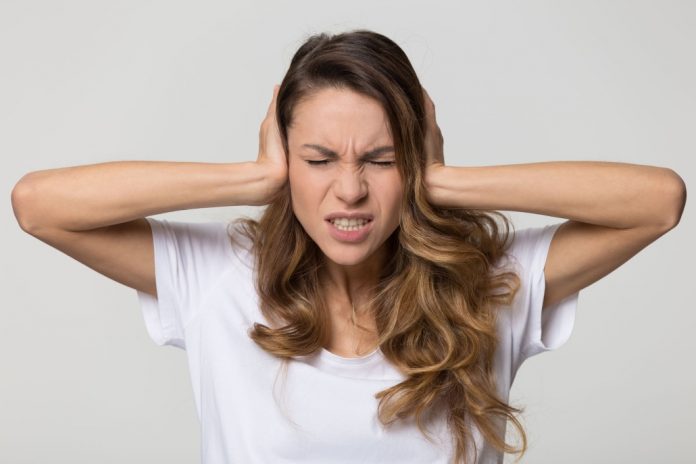Sinusitis, commonly known as a sinus infection, is a condition that affects millions of people worldwide. It results from the inflammation of the nasal sinuses, which are small air-filled cavities located behind the cheeks, forehead, and eyes. Various factors, including allergies, infections, and anatomical abnormalities, can cause sinusitis. One of the most common causes of sinusitis is allergies, which can lead to ear ringing. In this article, we will discuss the role of allergies in sinusitis and ear ringing and how to manage symptoms and improve quality of life.
Understanding Allergies and Sinusitis
Allergies are the body’s response to foreign substances, known as allergens. Common allergens include pollen, dust mites, pet dander, and mold. When the body comes into contact with an allergen, it triggers an immune response, causing the release of histamine, a chemical that causes inflammation and other symptoms.
Sinusitis can occur due to allergies, as the inflammation caused by the body’s immune response can obstruct the nasal passages, preventing proper drainage of the sinuses. This can lead to a mucus buildup, creating an ideal environment for bacterial growth and resulting in an infection.
Symptoms of Allergic Sinusitis
Allergic sinusitis shares many symptoms with non-allergic sinusitis, including:
-
Congestion
-
Headaches
-
Facial pain or pressure
-
Postnasal drip
-
Reduced sense of smell and taste
-
Fatigue
-
Cough
However, some symptoms are more specific to allergic sinusitis, including:
-
Itchy, watery eyes
-
Sneezing
-
Runny nose
If you experience any of these symptoms, you must see your Sinusitis doctor Houston, who can determine whether allergies or another factor causes your sinusitis.
Managing Allergic Sinusitis
There are several ways to manage allergic sinusitis, including:
-
Avoiding allergens: The most effective way to manage allergic sinusitis is to avoid the allergens that trigger your symptoms. This may involve changing your home or work environment, such as using an air purifier or removing carpets and upholstery.
-
Medications: Over-the-counter or prescription medications can help manage the symptoms of allergic sinusitis, including antihistamines, decongestants, and nasal corticosteroids.
-
Immunotherapy: For severe cases of allergic sinusitis, your doctor may recommend immunotherapy, which involves exposing you to small amounts of the allergen over time to desensitize your immune system.
-
Home remedies: Some home remedies may also help manage the symptoms of allergic sinusitis, such as using a saline nasal spray or rinse, drinking plenty of fluids, and using a humidifier to keep the air moist.
Understanding Ear Ringing and Sinusitis
Ear ringing, also known as tinnitus, is a condition that affects the ears, causing a ringing, buzzing, or hissing sound in one or both ears. While it is not always clear what causes tinnitus, it is often linked to underlying health conditions, including sinusitis.
When the nasal passages become inflamed due to sinusitis, it can cause pressure to build up in the ears, leading to ear ringing. Additionally, sinusitis can cause the eustachian tube, which connects the middle ear to the back of the throat, to become blocked, further contributing to ear ringing.
Managing Ear Ringing
Fortunately, several options for sinus ear ringing treatment can help alleviate the symptoms and improve your quality of life.
-
Addressing underlying health conditions: If your tinnitus is caused by an underlying health condition, such as sinusitis, treating the condition may help alleviate the symptoms of ear ringing.
-
Managing stress: Stress can exacerbate tinnitus symptoms, so it’s important to manage stress through exercise, meditation, or yoga.
-
Using sound therapy: Sound therapy involves using external sounds to help mask the sound of ear ringing. This can include listening to music, using a white noise machine, or wearing hearing aids.
-
Avoiding loud noises: Loud noises can worsen tinnitus symptoms, so it’s essential to protect your ears from loud noises by wearing earplugs or avoiding loud environments.
Improving Quality of Life
Living with sinusitis and ear ringing can be challenging, but there are several ways to improve your quality of life, including:
-
Maintaining good hygiene: Practicing good hygiene, such as washing your hands regularly and avoiding touching your face, can help prevent the spread of infections and reduce the risk of sinusitis.
-
Getting enough rest: Getting adequate rest is crucial for maintaining a healthy immune system and managing the symptoms of sinusitis and ear ringing.
-
Eating a healthy diet: A healthy diet can help boost your immune system, reduce inflammation, and improve your overall health and well-being.
-
Seeking support: Living with a chronic condition can be challenging, so it’s essential to seek support from friends, family, or a support group.
Conclusion
Allergies play a significant role in sinusitis and ear ringing; managing the symptoms can improve your quality of life. Suppose you are experiencing symptoms of allergic sinusitis or ear ringing. In that case, it’s important to see your Sinusitis doctor Houston, who can determine the underlying cause and recommend appropriate treatment options. By managing your symptoms and improving your overall health and well-being, you can lead a fulfilling life, despite living with these chronic conditions.
If you experience chronic sinusitis or ear ringing, consult Texas Sinus & Snoring to determine the best course of sinus ear ringing treatment for your individual needs.





